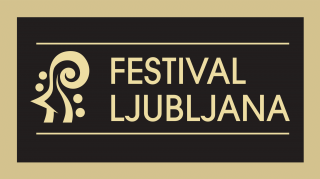Important information
Dear visitors,
we would like to inform you, that due to illness the recital of pianist Grigory Sokolov in Cankarjev dom on Sunday, 2 March, is cancelled. The concert will be held at an alternative time, which will be announced later. All ticket holders are entitled to a refund or exchange for another event organized by the Ljubljana Festival. You can find more information here.We apologise for the inconvinience and thank you for your understanding,
your Ljubljana Festival(Ljubljana, 28 February 2025)
Programme:
William Byrd:
Fitzwilliam Virginal Book
John come kiss me now BK81, T478
My Ladye Nevells Booke
The first pavan BK29a, T487
The galliard to the first pavan BK29b, T487
Fantasia BK63, T455/ Fantasia
Alman BK11, T436
Fitzwilliam Virginal Book
Pavan: The Earl of Salisbury
Galliard BK15b, T503
Second galliard BK15c, T503
Callino Casturame BK35, T441
***
Johannes Brahms
Four Ballades, op. 10
Andante, No. 1 in d minor, “Edward”
Andante, No. 2 in D major
Intermezzo. Allegro, No. 3 in b minor
Andante con moto, No. 4 in B major
Two Rhapsodies, op. 79
Allegro, No. 1 in b minor
Molto passionato, No. 2 in g minor
The 74-year-old Russian pianist Grigory Sokolov occupies one of the highest places in the pantheon of piano masters, with several critics over the years having proclaimed him the world’s greatest living pianist. His remarkable talent began attracting attention when he was just 12 and at 16 he became the youngest ever winner of the prestigious International Tchaikovsky Piano Competition. Owing to the political situation at the time, however, he was limited to performances in his homeland. His international breakthrough did not come until the late 1980s, after which he rapidly became one of the world’s most sought-after musicians, performing with all the world’s most prestigious orchestras. After a few years, however, he realised that the easiest way for him to express his musical vision was through piano recitals. Since then he has given no more than around 70 performances a year, taking the time to prepare every recital programme with care and immersing himself in it fully before presenting it to an audience.
The programme of this concert brings together two apparently entirely different musical traditions – Renaissance polyphony and Romantic expressiveness. Despite the historical distance that separates them, William Byrd and Johannes Brahms share a passion for a dense yet elegant interweaving of voices and demand an attentive listener who is able to recognise the profound musicality that lies in the apparent simplicity of their compositions. Both composers call for an interpreter capable of finding, in an echo of the pathos of folk music, their subtle but nonetheless intense musical expression.



